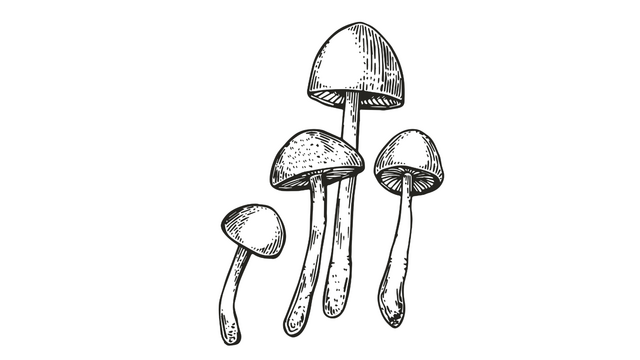Oregon Psilocybin Update: Advisory Board Subcommittees Begin Finalizing Rule Recommendations

The Oregon Psilocybin Advisory Board (Advisory Board) held a meeting on October 27 to begin fine tuning recommendations for the first regulated psilocybin treatment model in the United States. The Advisory Board’s recommendations will be sent to the Oregon Health Authority (OHA) for consideration during OHA’s formal rule making process.
Recommendations voted on by The Oregon Psilocybin Advisory Board come from five subcommittees - equity, licensing, products, research, and training. This blog post will discuss the rulemaking timeline and provide updates regarding policy recommendations from the five subcommittees.
Rulemaking Timeline
Final recommendations from the products and training subcommittees have been expediated with a deadline set for November 24, 2021. OHA will work off these recommendations when they hold rule making hearings on products and training from February 14 to 25, 2022. The Advisory Board adopted this condensed deadline to ensure facilitators will be trained, and labs will be ready for testing before OHA begins accepting applications on January 2, 2023.
All other subcommittees - equity, licensing, and research - must send their final recommendations to the Advisory Board by June 30, 2022. OHA will conduct rulemaking on those topics in September 2022 and rules will go into effect on December 30, 2022.
Equity Subcommittee
The Advisory Board’s efforts are equity focused and the equity subcommittee is charged with ensuring that all rule recommendations consider health, economic, environmental, and social equity. To promote robust discussion the equity subcommittee has sent one of its members to each of the other subcommittees to serve as an equity liaison. These liaisons present equity subcommittee recommendations and participate in discussion to ensure that all subcommittees actively consider equity in their policy recommendations.
The equity subcommittee has published recommendations relating to psilocybin products, facilitator training, and will soon publish licensing recommendations. The equity subcommittee’s efforts seem to effectively influence the other subcommittees in making equity-centric recommendations. The licensing subcommittee adopted an equity subcommittee recommendation requiring all psilocybin license applications to include an equity plan, and the training subcommittee has included equity-centered curriculum in their proposed training program.
Licensing Subcommittee
The licensing subcommittee has published draft documents relating to informed consent forms and the fiduciary duties of psilocybin facilitators. The licensing subcommittee also passed recommendations regarding security requirements, outdoor treatment sessions, staff ratios for group sessions, and a recommendation to allow public advertisement of psilocybin products and services.
The licensing subcommittee’s recommendation to allow advertising may become a divisive issue during rulemaking. Ballot Measure 109 gives OHA the power to completely ban advertisement of psilocybin products to the public. Despite this, the licensing subcommittee recommended to only limit advertisement of psilocybin products and services that are false or misleading, make medical claims, or target minors or other individuals ineligible to receive psilocybin services. It will be interesting to see if OHA exercises their authority to ban advertisement of psilocybin products and the First Amendment issues that would arise if OHA goes down that route.
Products Subcommittee
The Advisory Board tasked the products subcommittee with making recommendations on product testing, cultivation techniques, and consumer protection. The full Advisory Board already approved several recommendations from the products subcommittee, including recommendations to limit psilocybin products to the mushroom species “Psilocybe Cubensis” and allowing extracts as a permitted psilocybin product. These recommendations require OAH to review allowable species every 12 months starting in January 2024. Additionally, the Advisory Board approved a recommendation to ban the use of dung and woodchips as cultivation substrates.
The Advisory Board voted on several other product subcommittee recommendations at the most recent Advisory Board meeting, including recommendations to initially prohibit the manufacture of psilocybin by chemical synthesis, allow manufacturers to combine psilocybin with food products, and ban the combination of psilocybin with cannabis products or alcoholic beverages.
Research Subcommittee
Measure 109 requires the Advisory Board to give recommendations to OHA on the efficacy and safety of psilocybin therapy. The research subcommittee is leading this effort and as discussed in Alicia Altenau’s September 1 blog post, the Advisory Board has already published its first Rapid Evidence Review and Recommendations report. The report found evidence that psilocybin therapy may be helpful in treating depression, anxiety, end-of-life issues, and addiction.
The research subcommittee is now moving forward to its second round of reporting. This proposed new round of research partners members of the Advisory Board with an academic research initiative known as the Project on Psychedelics Law and Regulation (POPLAR) at the Petrie-Flom Center for Health Law Policy, Biotechnology, and Bioethics at Harvard Law School. Results from this second and more intensive study will likely not be available until 2022.
Training Subcommittee Updates
The training subcommittee has drafted recommendations on training that are under consideration by the full Advisory Board. The recommendations would not require that psilocybin facilitators have an advance degree; but would require facilitators to pass psilocybin specific training and testing standards. The proposed training recommendations require administrators to complete 120 hours of core training and 40 hours of on-site practicum training.
Program curriculum will educate students on the historical and current role of psychedelic plant medicine, the basic science behind the current research and theory of psilocybin-assisted therapies, how to prepare and screen clients for psilocybin use, and how to properly administer psilocybin and supervise treatment sessions. The proposed recommendations also require that students complete continuing education credits centered around psilocybin therapy.
